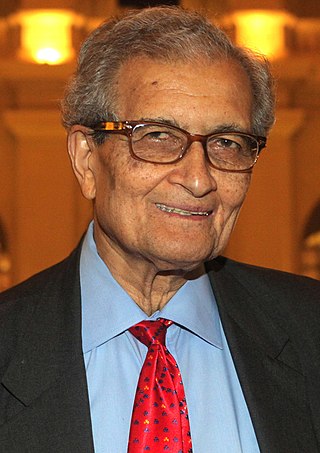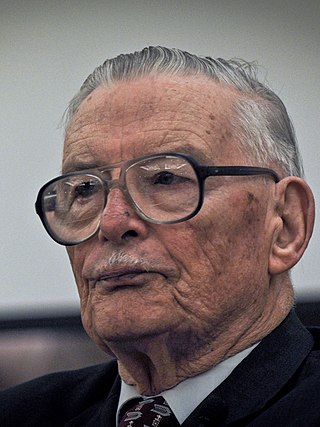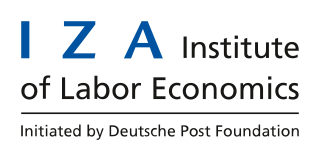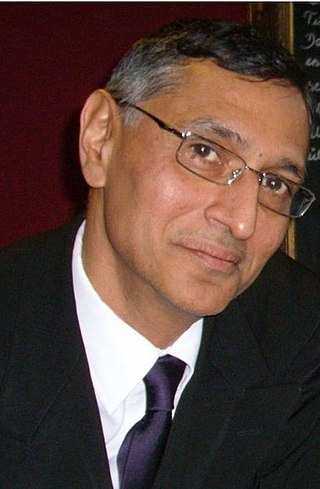
Kenneth Joseph Arrow was an American economist, mathematician, writer, and political theorist. Along with John Hicks, he won the Nobel Memorial Prize in Economic Sciences in 1972.

Amartya Kumar Sen is an Indian economist and philosopher, who has taught and worked in the United Kingdom and the United States since 1972. Sen has made contributions to welfare economics, social choice theory, economic and social justice, economic theories of famines, decision theory, development economics, public health, and measures of well-being of countries.

James McGill Buchanan Jr. was an American economist known for his work on public choice theory originally outlined in his most famous work, The Calculus of Consent, co-authored with Gordon Tullock in 1962. He continued to develop the theory, eventually receiving the Nobel Memorial Prize in Economic Sciences in 1986. Buchanan's work initiated research on how politicians' and bureaucrats' self-interest, utility maximization, and other non-wealth-maximizing considerations affect their decision-making. He was a member of the Board of Advisors of The Independent Institute as well as of the Institute of Economic Affairs, a member of the Mont Pelerin Society (MPS) and MPS president from 1984 to 1986, a Distinguished Senior Fellow of the Cato Institute, and professor at George Mason University.

Jacob Marschak was an American economist.

The IZA - Institute of Labor Economics, until 2016 referred to as the Institute for the Study of Labor (IZA), is a private, independent economic research institute and academic network focused on the analysis of global labor markets and headquartered in Bonn, Germany.
David Knudsen Levine is an American economist. He is the Leverhulme International Professor of Economics at Royal Holloway, University of London; Robert Schuman Center for Advanced Study Joint Chair at the European University Institute; and the John H. Biggs Distinguished Professor of Economics Emeritus at Washington University in St. Louis. He previously taught at UCLA where he held the Armen Alchian Chair in Economic Theory and twice served as Chair of the Department. His research includes the study of intellectual property and endogenous growth in dynamic general equilibrium models, the endogenous formation of preferences, social norms and institutions, learning in games, and game theory applications to experimental economics.
Shlomo Weber is an economics professor and president, New Economic School in Moscow, Russia; Academic Director of the Center for Study of Diversity and Social Interactions at NES; Robert H. and Nancy Dedman Trustee Professor of Economics Department of Economics, Southern Methodist University.
Martin Joseph Beckmann was a professor for Economics and Applied Mathematics. He was professor at the University of Chicago, Yale University and Brown University, as well as the University of Bonn and Technische Universität München. He received honorary degrees from the University of Karlsruhe, the Umeå University and the University of the Bundeswehr Hamburg. He was president of the European Regional Science Association and received the Regional Science Founders Medal in 1983. His research spans a wide field in spatial analysis and regional economics, with a special focus on transport economics.
Social preferences describe the human tendency to not only care about one's own material payoff, but also the reference group's payoff or/and the intention that leads to the payoff. Social preferences are studied extensively in behavioral and experimental economics and social psychology. Types of social preferences include altruism, fairness, reciprocity, and inequity aversion. The field of economics originally assumed that humans were rational economic actors, and as it became apparent that this was not the case, the field began to change. The research of social preferences in economics started with lab experiments in 1980, where experimental economists found subjects' behavior deviated systematically from self-interest behavior in economic games such as ultimatum game and dictator game. These experimental findings then inspired various new economic models to characterize agent's altruism, fairness and reciprocity concern between 1990 and 2010. More recently, there are growing amounts of field experiments that study the shaping of social preference and its applications throughout society.

Michel Louis Balinski was an American and French applied mathematician, economist, operations research analyst and political scientist. Educated in the United States, from 1980 he lived and worked in France. He was known for his work in optimisation, convex polyhedra, stable matching, and the theory and practice of electoral systems, jury decision, and social choice. He was Directeur de Recherche de classe exceptionnelle (emeritus) of the C.N.R.S. at the École Polytechnique (Paris). He was awarded the John von Neumann Theory Prize by INFORMS in 2013.
Prasanta Kumar Pattanaik, is an Indian-American emeritus professor at the Department of Economics at the University of California. He is a Fellow of the Econometric Society.

Dr. Naqvi is an economist, professor and researcher in fields of development economics, theories of value and theory of individual choice and social welfare. In the past he was a lecturer and economics theory researcher at AUBG, Justus Liebig University, Central Michigan University and Middle Tennessee State University. Amongst other research publications, Dr Naqvi is notable for his contribution in developing general equilibrium model for Lesotho. As of 2015 Dr Naqvi is lecturing at KIMEP University.
Felix Kübler is a German economist who currently works as Professor of Financial Economics at the University of Zurich. His research interests include computational economics, general equilibrium theory and portfolio choice. In 2012, he was awarded the Gossen Prize in recognition of his contributions to economic research.
Edi Karni is an Israeli born American economist and decision theorist. Karni is the Scott and Barbara Black Professor of Economics at Johns Hopkins University. He is a Fellow of the Econometric Society and an Economic Theory Fellow of the Society for the Advancement of Economic Theory.

Carlos Alós-Ferrer is a professor of decision and neuroeconomic theory at the University of Zurich and is currently the editor in chief of the Journal of Economic Psychology.
The gift-exchange game, also commonly known as the gift exchange dilemma, is a common economic game introduced by George Akerlof and Janet Yellen to model reciprocacy in labor relations. The gift-exchange game simulates a labor-management relationship execution problem in the principal-agent problem in labor economics. The simplest form of the game involves two players – an employee and an employer. The employer first decides whether they should award a higher salary to the employee. The employee then decides whether to reciprocate with a higher level of effort due to the salary increase or not. Like trust games, gift-exchange games are used to study reciprocity for human subject research in social psychology and economics. If the employer pays extra salary and the employee puts in extra effort, then both players are better off than otherwise. The relationship between an investor and an investee has been investigated as the same type of a game.
Emanuel V. Towfigh holds the Chair in Public Law, Empirical Legal Research and Law & Economics at EBS Law School and is Professor for Law & Economics at the EBS Business School. He served as the Law School’s Dean from 2018 to 2020. Since August 2021 he holds the position of Distinguished Scholar in Residence at Peking University School of Transnational Law.

Andranik Semovich Tangian (Melik-Tangyan) ; born March 29, 1952) is a Soviet Armenian-German mathematician, political economist and music theorist. He is professor of the Institute for Economics (ECON) of the Karlsruhe Institute of Technology.
Annick Laruelle is a Belgian economist who works as a professor in the faculty of economics and business at the University of the Basque Country in Spain. Her research involves social choice, game theory, and voting systems. Beyond her main research efforts in economics and social science, she has also applied game theory to model the competition between cells in cancer.
Budget-proposal aggregation (BPA) is a problem in social choice theory. A group has to decide on how to distribute its budget among several issues. Each group-member has a different idea about what the ideal budget-distribution should be. The problem is how to aggregate the different opinions into a single budget-distribution program.









